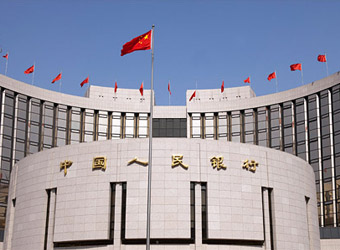China’s central bank is playing a dangerous game using the country’s foreign reserves to prop up the yuan because it could leave the nation defenceless in an increasingly volatile world, according to a state researcher.
Zhang Ming, senior fellow at the Institute of World Economics and Politics under the Chinese Academy of Social Sciences, warned that the People’s Bank of China (PBOC) should take a hands-off approach to the currency and focus on safeguarding foreign exchange reserves.
“Forex reserves are valuable assets that [China] can use at critical times. It’s a pity that they are being sold heavily in the market,” Zhang said. “It should be the last resort.”
Zhang said the PBOC was betting on “the weakening of the US dollar and a domestic economic rebound”.
The country’s forex reserves have shrunk by almost a $1 trillion since June 2014 as the central bank has sought to prevent a large fall in the yuan against the U.S. dollar.
Zhang call’s for Beijing to reverse tack and abandon its heavy intervention in the foreign exchange market is gaining traction among researchers.
Zhang Bin, another researcher at the Chinese Academy of Social Sciences, agreed that Beijing should free up controls on the yuan’s exchange rate by reducing government intervention in the market.
“Floatation does not mean a large devaluation,” he said.
“Actually, a one-off devaluation [of the yuan] doesn’t need to be big, and [the currency] may rebound as well. By doing this it will help the domestic economy,” he said.
Tsinghua University professor Zhu Ning also said earlier that Beijing should let the market determine the yuan’s exchange rate.
The prospects of this approach becoming a policy option appear to be rising, especially with the decline in the reserves.
Zhang Ming said the real loss in reserves may be higher than $1 trillion because there were ways the central bank could cover some of its interventions in the market, including borrowing dollars by using its overseas assets as collateral or selling dollars in forward markets. But he added that there was no evidence to prove this had happened.
If the central bank had carried out these actions it was because it was pinning its hopes on the dollar finally weakening, Zhang Ming said.
The country’s official foreign exchange reserves stood at just above $3 trillion at the end of last year and Beijing has tightened controls over the capital account by restricting outbound investment and individual foreign exchange purchases, even within the annual quota of $50,000 per person.
The risks of the yuan further depreciating against the U.S. dollar and capital flowing out of China remain high, given the prospect of higher interest rates on U.S. dollar assets and uncertainties over China-U.S. trade conflicts under a hardline new U.S. administration.
The yuan would depreciate against the dollar by “about 5 percent” in 2017, according to Zhang Ming. The yuan lost nearly 7 percent against the dollar last year.
Beijing has proved very sensitive to the yuan’s exchange rate.
When there were misreports that the yuan had weakened to less than seven against the US dollar last month, the central bank issued a late-night statement reminding the market that the key psychological level remained unbroken.
The central bank also adopted fresh approaches, rather than merely selling U.S. dollars, to maintain the stability of the Chinese currency.
The yuan exchange rate against the U.S. dollar has strengthened in recent weeks and the daily mid-price was set at 6.8693 in trading in China on Friday.
Source: South China Morning Post


